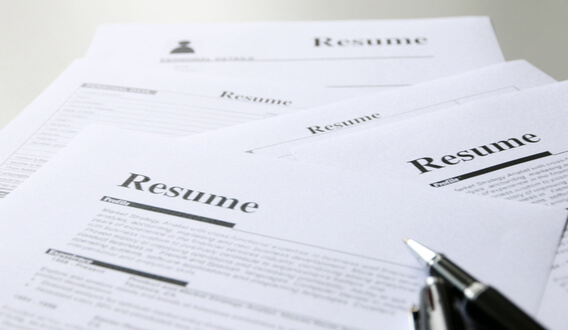When writing a resume, many people have two questions. One of them concerns the filling of the document to be a perfect fit for a vacancy, and the second — the length of a potential ticket to a dream job. This article is intended to touch on the second topic, as it is, indeed, more controversial. There is no right answer to the question “Should I have a 1 or 2-page resume?” because each person has a different position on the career ladder and several other characteristics that can affect the taken choice.

How Long Should a Resume Be?
What Is an Ideal Resume Length?
Even though each case of writing a resume should be considered separately, there are still general points for determining the optimal length. Among them, the main ones are:
-
Work experience
Speaking of the employee’s previous jobs, everyone knows that this snippet is the main part of the resume. Therefore, if your work experience is solid enough and is 10 or more years, in most cases you can be sure to use more pages. If you are a student or graduate, then the best choice here would be a short and maximally capacious resume.
-
Area of work
Also, the resume length can be significantly affected by the area of work of the employee. It will be more correct in most areas to include only the most recent jobs and projects, making the resume more convenient for recruiters to evaluate. But, for example, in technical or academic fields, scientists choose to create documents that are quite large in volume, which include, for example, a list of numerous scientific papers.
-
Frequency of changing a workplace
In addition to the first point, it can be added that great work experience does not always equal a very long resume. If you have changed two companies over the past 15 years, then it is not worth forcibly expanding your resume to a large number of pages. However, even if your career experience is less than 10 years, but you often change jobs, then it will be rational to describe each of your positions there and it will change the length.
However, it is worth remembering that there are also minor ones in addition to the main factors, so we will take a closer look at when to use a 1 and 2-page resume.
Read Also: How to Write an Academic CV
When Does a Resume Have to Be One Page?
Previously, when employers weren’t using modern technology, resume size was crucial. All documentation was submitted in printed form, and here one-page resume was more preferable since the second sheet could easily get lost. Nowadays, resumes are usually sent to the employer by email, so this problem has disappeared.
In the 21st century, it’s best to write a one-page resume if you are:
- Student or graduate
- Having less than 7 years of experience (on average)
- Working in an area in which a one-page resume is preferable
- Retraining to a new position without the necessary work experience
The last point requires more attention. If you are fundamentally changing the field of employment and your previous work experience has nothing to do with the new position, then it is better not to extend your resume over two pages. In the case when there is still some kind of connection, the resume will turn out to be longer due to the indication of skills and experience.
Resume Length: Is It Okay to Have a 2-Page Resume?
According to recent research, the “less is more” theory is debunked. Peter Yang, who is the CEO of this company, published data, which makes it clear that employers prefer a larger resume size nowadays. 2.3x more recruiters prefer two-page resumes overone-page resumes, despite spending nearly double the time reviewing and analyzing them.
However, you shouldn’t lengthen your resume to get a job if you are not:
- Professional with 7+ experience in a suitable field
- Having a large number of hard skills that require a detailed description and reinforcement
- Having many different successful projects related to the vacancy
With the correct creation of such a professional resume and the indication of relevant experiences, size will not prevail.
How Long Can Your Resume Be?
In almost all areas of activity, the most preferable format will still be a 2-page resume. A 3+ page document is only acceptable if you are a scientist or conduct all sorts of academic activities. Jobs in the medical field can also require long and detailed resumes. Such a large number of pages may be needed to describe your scientific works and projects. Also, if you are looking for a job in the federal government, your resume will be different from the rest. In this case, a 3+ page length resume is a very common practice.
In other cases, it is recommended to submit to recruiters 1 or 2-page resumes, depending on your work experience.
Tips on How to Achieve Perfect Resume Length
Most of the time, people have problems when writing a resume that is too long. In this case, it needs to be reduced and optimized. Writing a professional resume will be possible by adhering to the following principles:
- Relevance
In most cases, the employer will not be interested in your 20-year-old two-week internship, so you should only include projects and skills that are directly related to the job you are applying for.
- Best achievements first
Remember that the recruiter evaluates your resume fairly quickly and immediately decides if you can make the right fit. Therefore, it is in your best interest to present all your best achievements on the first page in the most convenient way to attract the attention of the employer.
- Using different fonts
There are a huge number of fonts that are more convenient to use to increase the margin for work because of their small size. For example, Calibri takes up much less space than Times New Roman. You can also keep playing with spacing and formats, but keep in mind the aesthetic appearance of your document as well.
- Miller’s law
This law is also known as the 7 ± 2 rule. Its meaning is that a person’s short-term memory can remember only 7 ± 2 elements, and this rule is widely used in marketing. Interpreting it a little, we can say that using a large number of bullets or the number of list items will not have a positive effect. It is better to use 2-5 lines under each position to build a good-looking document. This way, your employer will learn more information from your “business card”, regardless of the number of pages.
Summary
So what size should a resume be for a professional to be the perfect fit for a recruiter and a hiring manager? In some cases, length still plays a big role, while in others, experience is more important. If you consider those options where size is one of the main factors, then the choice of a 1 or 2-page resume will most likely depend on your skills and abilities.
Also, your professional area and the design standards that it includes play an important role. There is still no single correct option on the labor market, so each job seeker must compose a resume at his own discretion. But having received all the important information in advance, it will be much easier to do.
Did these resume-length tips help your to learn more how long your resume should be? If not, hire a ResumeEdge writing service to get your job-winning resume.


